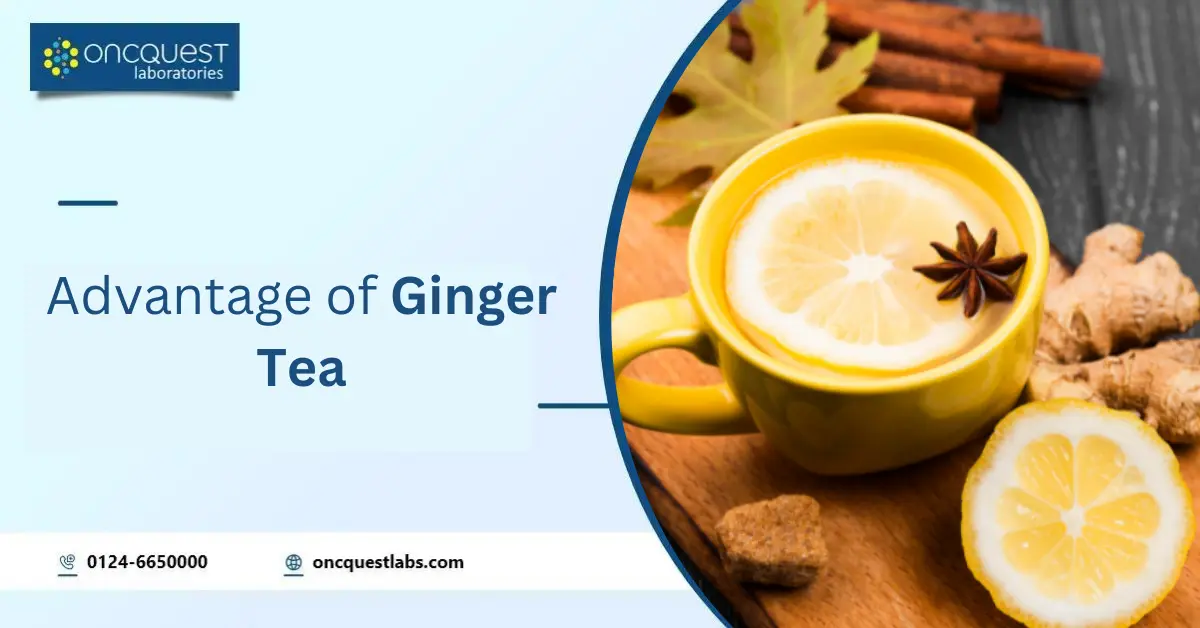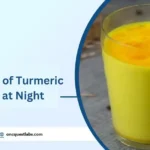Ginger, a root known for its distinctive flavor and potent medicinal properties, has been revered for centuries in traditional medicine across various cultures. Originating from Southeast Asia, ginger has been used not only as a culinary spice but also as a natural remedy for a myriad of ailments. One of the most popular ways to harness the benefits of ginger is through ginger tea.
Ginger tea, a soothing and aromatic beverage, is more than just a comfort drink; it is a powerhouse of health benefits. Whether consumed to alleviate digestive issues, boost the immune system, or reduce inflammation, ginger tea offers a natural and effective solution. Its rich nutritional profile, including essential vitamins, minerals, and bioactive compounds, makes it a valuable addition to any health regimen.
This outline explores the numerous advantages of ginger tea, delving into its nutritional benefits, therapeutic properties, and practical uses. By understanding the science behind ginger tea’s health benefits, you can appreciate why this ancient remedy remains a staple in modern wellness practices.
Contents
Ginger Tea Nutritional Information
Here’s a table showcasing the nutritional content of ginger per 100 grams, as well as an estimated content per serving (approximately 1 cup of ginger tea, made with 2 grams of fresh ginger).
| Nutrient | Amount per 100g (Fresh Ginger) | Amount per Serving (1 Cup of Ginger Tea, ~2g Ginger) |
| Calories | 80 kcal | 1.6 kcal |
| Carbohydrates | 17.8 g | 0.36 g |
| Fiber | 2.0 g | 0.04 g |
| Protein | 1.8 g | 0.04 g |
| Fat | 0.8 g | 0.016 g |
| Vitamin C | 5 mg | 0.1 mg |
| Vitamin B6 | 0.2 mg | 0.004 mg |
| Potassium | 415 mg | 8.3 mg |
| Magnesium | 43 mg | 0.86 mg |
| Manganese | 0.2 mg | 0.004 mg |
| Calcium | 16 mg | 0.32 mg |
| Iron | 0.6 mg | 0.012 mg |
| Zinc | 0.3 mg | 0.006 mg |
| Folate | 11 mcg | 0.22 mcg |
| Niacin (Vitamin B3) | 0.75 mg | 0.015 mg |
| Phosphorus | 34 mg | 0.68 mg |
- Serving Size: The nutritional values per serving are estimates based on the infusion of ginger into the water, with much of the nutrient content remaining in the solid ginger.
Advantage of Drinking Ginger Tea
Drinking ginger tea offers a range of health benefits, making it a popular choice for those seeking natural remedies and wellness solutions. Here are some of the key advantages:
1. Improves Digestion
Ginger tea significantly improves digestion by stimulating the production of digestive enzymes and gastric juices. This aids in the efficient breakdown of food and enhances nutrient absorption. It helps alleviate common digestive issues such as bloating, gas, and indigestion, providing quick relief from discomfort. The warming nature of ginger also helps in promoting healthy gut motility and soothe the digestive tract. Regular consumption of ginger tea can lead to better digestive health and overall gastrointestinal well-being, making it a valuable addition to your daily routine.
2. Reduces Inflammation
Ginger tea is highly effective in reducing inflammation due to its powerful anti-inflammatory compounds, particularly gingerol. These compounds work by inhibiting the production of inflammatory cytokines and enzymes, thereby alleviating symptoms associated with chronic inflammatory conditions such as arthritis and inflammatory bowel disease. Regular consumption of ginger tea can help decrease pain, swelling, and discomfort, promoting overall joint and muscle health. By naturally reducing inflammation, ginger tea supports a healthier, more balanced immune response and contributes to overall wellness.
3. Boosts Immunity
Ginger tea boosts immunity thanks to its rich antioxidant content and potent anti-inflammatory properties. These antioxidants help neutralize free radicals, reducing oxidative stress and enhancing the body’s natural defense mechanisms. Ginger also has antibacterial and antiviral properties, which help protect against infections and illnesses. Regular consumption of ginger tea can strengthen the immune system, making it more effective at fighting off colds, flu, and other common ailments. Enjoying ginger tea daily is a simple and natural way to support your overall immune health.
4. Alleviates Nausea
Ginger tea is renowned for its ability to alleviate nausea effectively. The bioactive compounds in ginger, such as gingerol and shogaol, help calm the stomach and reduce symptoms of nausea and vomiting. This makes ginger tea particularly beneficial for relieving motion sickness, morning sickness during pregnancy, and nausea associated with chemotherapy. The soothing warmth of ginger tea also aids in settling the stomach and promoting digestive comfort. Whether enjoyed hot or cold, ginger tea provides a natural and gentle remedy for nausea, making it a go-to option for those seeking relief without medications.
5. Supports Heart Health
Ginger tea supports heart health through several mechanisms that contribute to cardiovascular well-being. Its antioxidant properties help combat oxidative stress, reducing the risk of heart disease by preventing damage to blood vessels and lowering inflammation levels. Ginger tea also promotes better circulation by dilating blood vessels and improving blood flow, which can help lower blood pressure and reduce the risk of clot formation. Additionally, it supports healthy cholesterol levels by lowering LDL (bad) cholesterol and increasing HDL (good) cholesterol. Regular consumption of ginger tea can therefore contribute to a healthier heart and overall cardiovascular system.
6. Helps with Weight Management
Ginger tea aids in weight management through its multifaceted benefits. Firstly, it boosts metabolism, promoting calorie and fat burning due to its thermogenic properties. Additionally, ginger tea helps regulate blood sugar levels, curbing insulin spikes that can lead to cravings and overeating. It also supports digestion, aiding in nutrient absorption and maintaining gut health, which is essential for overall metabolic function. By promoting a feeling of fullness and reducing appetite, ginger tea serves as a natural and effective complement to a balanced diet and active lifestyle, supporting sustainable weight management goals.
7. Relieves Pain and Soreness
Ginger tea is known for its pain-relieving properties, particularly in reducing muscle soreness and joint pain. Its anti-inflammatory compounds help alleviate discomfort from arthritis and sore muscles after exercise. Consuming ginger tea can help ease the pain by reducing inflammation and providing a warming sensation that can soothe aches. Regular intake may support the management of chronic pain and discomfort, offering a natural alternative to over-the-counter pain medications.
8. Regulates Blood Sugar Levels
Ginger tea has shown promising effects in regulating blood sugar levels. Its active compounds, such as gingerol, can enhance insulin sensitivity, allowing cells to absorb glucose more effectively. This helps stabilize blood sugar levels and prevent sudden spikes, which are crucial for managing diabetes and reducing the risk of complications. Regular consumption of ginger tea alongside a balanced diet and exercise regimen may contribute to better glycemic control. However, individuals with diabetes should monitor their blood sugar levels closely and consult healthcare professionals before making significant dietary changes.
9. Enhances Brain Function
Ginger tea may play a role in enhancing brain function due to its antioxidant and anti-inflammatory properties. These properties help protect brain cells from oxidative stress and inflammation, which are implicated in cognitive decline and neurodegenerative diseases. Ginger tea could potentially support cognitive function, memory, and concentration by reducing oxidative damage and promoting overall brain health. Regular consumption as part of a healthy lifestyle may contribute to maintaining mental clarity and reducing the risk of age-related cognitive decline, although more research is needed to understand its specific effects on brain function fully.
10. Detoxifies the Body
Ginger tea is believed to aid in detoxifying the body by supporting the liver’s natural detoxification processes. The antioxidants and bioactive compounds in ginger help neutralize harmful toxins and free radicals, promoting overall liver health. This can enhance the liver’s ability to filter and eliminate toxins from the bloodstream, supporting clearer skin, improved digestion, and better overall health. Regular consumption of ginger tea as part of a balanced diet and healthy lifestyle may contribute to a more effective detoxification process, although it’s important to note that the body naturally detoxifies itself and no specific food or drink can entirely replace the body’s natural detoxification mechanisms.
Benefits of Drinking Ginger Tea for Skin
Ginger tea offers a range of benefits for skin health, owing to its potent antioxidants, anti-inflammatory compounds, and various nutrients. Here’s a detailed look at how ginger tea can benefit your skin:
Antioxidant Protection
Ginger contains antioxidants like gingerol, which combat oxidative stress and free radical damage. These antioxidants help prevent premature aging signs such as wrinkles, fine lines, and dark spots by neutralizing harmful free radicals.
Anti-Inflammatory Properties
Ginger is well-known for its powerful anti-inflammatory effects. Drinking ginger tea can reduce inflammation in the skin, soothing conditions like acne, eczema, and psoriasis. It helps calm redness and irritation, promoting a clearer complexion.
Enhanced Skin Tone
Regular consumption of ginger tea can improve skin tone and brightness. Its antioxidants and nutrients promote circulation, ensuring a healthy flow of blood to the skin. This leads to a natural radiance and a more even complexion.
Acne Treatment
Ginger’s antibacterial properties make it effective in combating acne-causing bacteria. Drinking ginger tea can help purify the blood, reducing breakouts and promoting clearer skin over time.
Improved Elasticity
Ginger contains vitamins, minerals, and essential oils that contribute to skin elasticity. It promotes collagen production, which enhances skin firmness and reduces sagging, leading to a more youthful appearance.
Incorporating ginger tea into your daily routine can complement skincare regimens, promoting healthy, glowing skin from the inside out.
Ginger Tea For Pregnant Woman
Relief from Nausea: Ginger tea is well-known for its anti-nausea properties, which can help alleviate morning sickness and nausea associated with pregnancy. It can provide soothing relief without the side effects of medications.
Digestive Aid: Pregnancy can sometimes lead to digestive discomfort such as bloating and indigestion. Ginger tea promotes digestion and helps relieve these symptoms, supporting overall gastrointestinal health.
Anti-Inflammatory Effects: Ginger’s anti-inflammatory properties can help reduce inflammation and discomfort, which may be beneficial for conditions like swollen ankles or joints during pregnancy.
Boosts Immunity: Ginger tea contains antioxidants and vitamins that support the immune system, helping pregnant women stay healthy and combat common illnesses.
Natural Stress Relief: Pregnancy can be a stressful time, and ginger tea’s calming properties can promote relaxation and reduce anxiety levels.
How to Make Ginger Tea
Making ginger tea is a straightforward process that can be customized based on your preferences. Here’s a simple method to make ginger tea:
Ingredients:
- 1-2 inches of fresh ginger root
- 1-2 cups of water
- Optional: Honey, lemon, or mint for flavor
Instructions:
- Prepare the Ginger:
- Wash the ginger root thoroughly under running water to remove any dirt or residue.
- Use a spoon or vegetable peeler to peel the ginger root.
- Slice the ginger into thin pieces or grate it finely. Slicing or grating helps release more flavor and nutrients.
- Boil Water:
- In a small saucepan, bring 1-2 cups of water to a boil over medium-high heat.
- Steep the Ginger:
- Once the water reaches a boil, add the sliced or grated ginger to the pot.
- Reduce the heat to low and let the ginger simmer in the water for about 5-10 minutes. This allows the flavor and beneficial compounds to infuse into the water.
- Optional Additions:
- For added flavor and health benefits, you can add a teaspoon of honey for natural sweetness.
- Squeeze in some fresh lemon juice for a tangy twist and additional vitamin C.
- Add a few fresh mint leaves for a refreshing flavor.
- Strain and Serve:
- After simmering, remove the saucepan from heat.
- Use a fine mesh strainer or sieve to strain the ginger tea into a mug or teapot, discarding the ginger pieces.
- Enjoy Your Ginger Tea:
- Stir the tea well and sip it while it’s still warm. Ginger tea can be enjoyed throughout the day, either hot or chilled.
Tips:
- Adjust Strength: If you prefer a stronger ginger flavor, steep the tea for a longer period or add more ginger.
- Variations: Experiment with different additions like cinnamon, cloves, or turmeric to enhance the flavor and health benefits.
- Storage: Store any leftover ginger tea in the refrigerator for up to 2-3 days and reheat before serving.
Making ginger tea at home allows you to enjoy its soothing taste and numerous health benefits, from aiding digestion to supporting immune function. Incorporate it into your daily routine for a refreshing and nutritious beverage option.
Conclusion
Ginger tea is not only a delicious and comforting beverage but also a powerhouse of health benefits. From aiding digestion and boosting metabolism to supporting immune function and reducing inflammation, ginger tea offers a natural remedy for various health concerns. Its versatility allows for customization with added ingredients like honey, lemon, or mint, enhancing both flavor and health benefits. Incorporating ginger tea into your daily routine can contribute to overall well-being and complement a healthy lifestyle.
FAQ (Frequently Asked Questions)
Is ginger tea good for weight loss?
- A: Yes, ginger tea can aid in weight loss by boosting metabolism, promoting satiety, and supporting digestion.
How much ginger tea should I drink per day?
- A: It is generally recommended to drink 2-3 cups of ginger tea per day for maximum health benefits. Adjust based on personal preference and tolerance.
Can ginger tea help with nausea?
- A: Yes, ginger tea is effective in reducing nausea, whether from motion sickness, morning sickness during pregnancy, or chemotherapy.
Is ginger tea safe for everyone to drink?
- A: Ginger tea is generally safe for most people when consumed in moderation. However, individuals on blood-thinning medications or with certain medical conditions should consult a healthcare provider before regular consumption.
How can I store leftover ginger tea?
- A: Store leftover ginger tea in a sealed container in the refrigerator for up to 2-3 days. Reheat before serving if desired.





